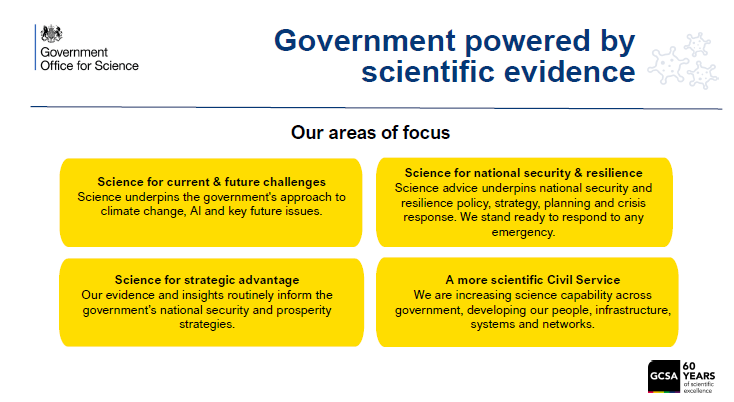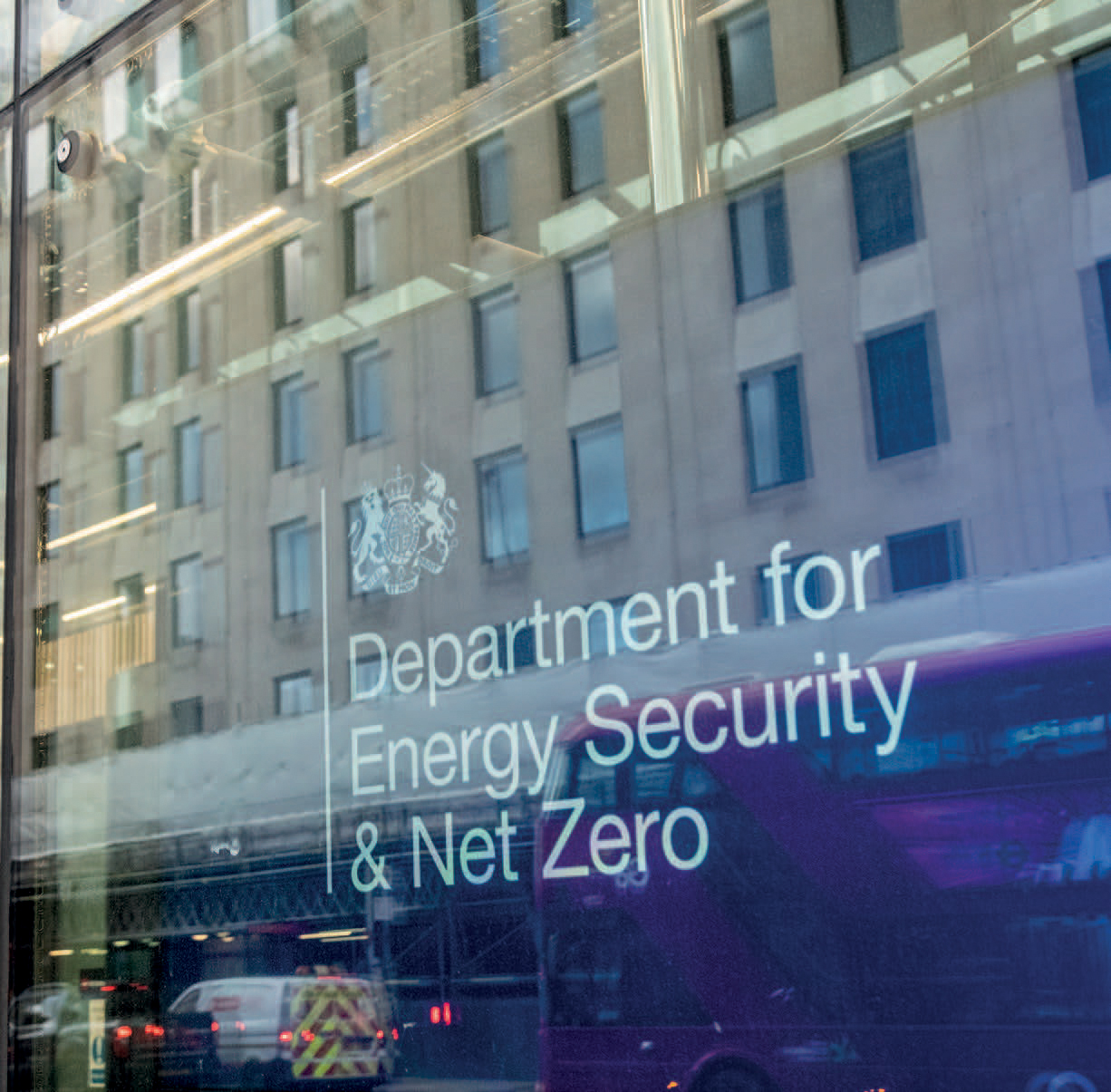FST JOURNAL
Research Integrity
DOI: https://www.doi.org/10.53289/UZBH2474
Research Integrity as part of rebuilding trust in government
Cathy Alexander

Cathy Alexander is based in the Government Office for Science where she is Deputy Director for Science & Innovation, Systems & Capability. Cathy’s responsibilities include leading work to build a more scientific civil service. Cathy joined GO-Science in March from the Department for Science, Innovation and Technology where she was Deputy Director for Research Talent & European Programmes, leading work to deliver the UK’s Association to Horizon Europe. Previously, Cathy has worked on a range of international, energy and resilience policy roles across Government.
Summary:
- There is evidence that trust in Ministers and Government has fallen and there are challenges around trust and integrity which we are working to address
- In 2019, the Government Office of Science published a science capability review, which recognised that research integrity was important for government
- Government Office for Science has overseen the implementation of research integrity principles across all government departments
- Building on the ethical standards observed by the civil service, we published guidance to apply the Concordat to Support Research Integrity in a government context
- We have asked government departments to publish annual statements setting out how they have applied the principles of the Concordat.
Last year, an IPSOS survey indicated that there had been a decline in trust of politicians, ministers and civil servants. However, scientists are trusted by 75 per cent of people. We know that trust is really important as it gives governments a mandate to govern. It is therefore necessary to rebuild trust.
Government Office for Science (GOS) works to put excellent science advice at the heart of decision making, across the whole of government. The Government Chief Scientific Adviser, Professor Dame Angela McLean, leads GOS and advises the Prime Minister and the government on all matters relating to science, engineering and technology. This year we are celebrating the 60th anniversary of the Government Chief Scientific Adviser role. The GCSA’s work helps to ensure that we have a strong focus on science and engineering within government.

Government Office for Science has made it our priority to develop a more scientific civil service. My team lead this priority, and as part of that we oversee a network of Chief Scientific Advisors in all government departments. We also lead and support a 10,000 strong Government Science and Engineering Profession, which brings together people across government and public organisations who have a role or a background in science and engineering. We are working to increase the science capability of departments by supporting and advising them to develop science systems. We also help departments to develop Areas of Research Interest (ARIs) and publish those. ARIs, which are now available and searchable on a public database, enable academics and other experts to connect with relevant government departments so that their research or expertise can inform government policy. Government departments and bodies also conduct or commission their own research, which is where our work on Research Integrity applies.
Guidance and review
In 2019, the Government Office of Science published a Science Capability Review (and progress update published January 2024), which recognised research integrity as being important. We also published guidance in February 2022 which applied The Concordat to Support Research Integrity to all government research. This built on the ethical standards that all public servants must follow, as set out by The 7 Principles of Public Life, also known as the Noland Principles. The Guidance sets high standards for our research community, including ensuring that research is conducted to legal and professional standards. We believe that this leads to better quality research, knowledge growth, and a stronger evidence base, which in turn supports the government's decision-making process. Since publishing the guidance, we have worked with departments to embed the requirements within their science systems, and we have discussed and considered some of the practical implications with them, such as having the right resources available and identifying suitable training.
As required by the Concordat to Support Research Integrity, we have asked government departments to publish annual statements to set out their progress with implementation. 11 government departments and bodies published annual statements for 2022-23 and the Department of Energy Security and Net Zero is the first department to publish their annual statement for 2023-24. Other departments are also making good progress with these.

In terms of next steps, we need to consider the implications of AI for research integrity. We also need to identify measures and indicators for success and to look at how we embed them into our processes. We know that there is more work to do and we intend to continue our research integrity journey - improving and supporting research culture within government, and engaging with the academic community to continue to identify good practice. That will be a really important part of rebuilding trust and confidence in government, the evidence it uses and the decisions it makes.
